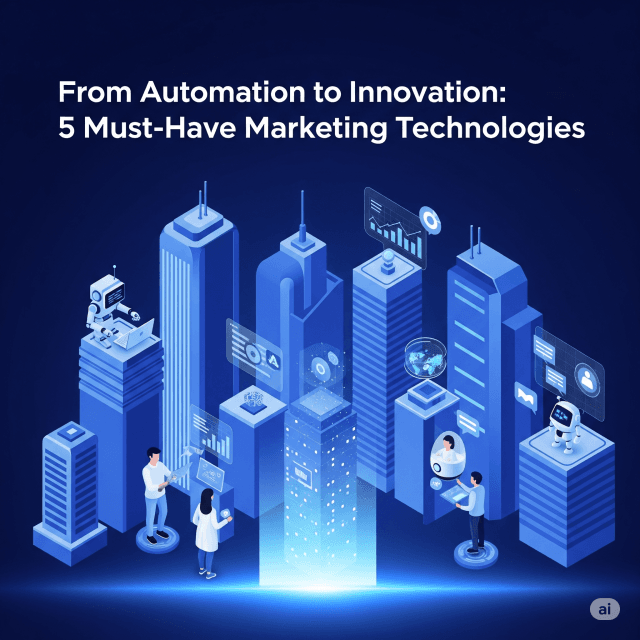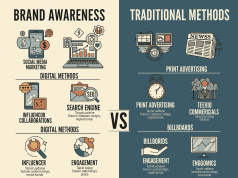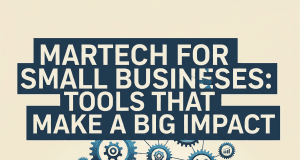In the rapidly evolving landscape of digital marketing, companies are increasingly navigating the shift from automation to innovation. To stay competitive and responsive to consumer needs, integrating advanced marketing technologies is essential. Here, we explore five must-have marketing technologies that not only streamline processes but also foster creativity and enhance customer engagement.
1. Customer Relationship Management (CRM) Systems
Overview
A robust CRM system serves as the backbone of any successful marketing strategy. It allows businesses to manage interactions with current and prospective customers, providing a 360-degree view of the customer journey.
Benefits
- Personalization: CRMs facilitate personalized marketing by leveraging customer data, which enhances user experience and boosts retention rates.
- Segmentation: They allow for effective segmentation of audiences based on behavioral and demographic factors, enabling targeted marketing campaigns.
Leading Solutions
Popular CRM platforms such as Salesforce, HubSpot, and Zoho offer comprehensive features that cater to diverse business needs, enhancing customer relationships and streamlining communication.
2. Marketing Automation Tools
Overview
Marketing automation platforms enable businesses to automate repetitive marketing tasks such as email campaigns, social media posting, and lead scoring.
Benefits
- Efficiency: These tools free up valuable time for marketers, allowing them to focus on strategy and creative development.
- Data-Driven Insights: By analyzing user interactions, marketers can optimize campaigns in real-time, ensuring higher conversion rates and ROI.
Leading Solutions
Tools like Mailchimp, Marketo, and ActiveCampaign offer a wide array of automation features, from email workflows to advanced analytics.
3. Artificial Intelligence (AI) and Machine Learning
Overview
AI and machine learning are transforming the marketing landscape by providing insights and predictions based on vast data sets.
Benefits
- Predictive Analytics: AI tools can predict customer behavior, enabling more effective targeting and personalized experiences.
- Content Generation: AI can assist in content creation, from generating headlines to curating personalized recommendations.
Leading Solutions
Platforms like ChatGPT, Google AI, and IBM Watson provide capabilities that enhance customer interactions and drive innovation in content strategies.
4. Social Media Management Tools
Overview
Effective social media is crucial for brand awareness and customer engagement. Management tools streamline the scheduling, monitoring, and analysis of social media activities.
Benefits
- Consistency: Scheduling features ensure content is consistently posted, maintaining engagement without overwhelming teams.
- Analytics: These tools provide insights into social media performance, helping marketers understand what works and enabling data-driven adjustments.
Leading Solutions
Hootsuite, Buffer, and Sprout Social are among the top platforms that offer comprehensive social media management features.
5. Content Management Systems (CMS)
Overview
A CMS enables businesses to create, manage, and optimize digital content effortlessly, ensuring cohesive brand messaging across all channels.
Benefits
- SEO Optimization: Many CMS platforms come equipped with SEO tools that help optimize content for search engines, improving visibility.
- User-Friendly: Content can be easily updated and managed without needing extensive technical knowledge.
Leading Solutions
WordPress, Wix, and Shopify cater to a variety of content needs, from blogs to full-fledged e-commerce sites, allowing businesses to adapt quickly to changing market demands.
Conclusion
As marketing continues to evolve, integrating the right technologies will facilitate the shift from automation to innovation. By adopting these five must-have marketing technologies, businesses can not only streamline their operations but also foster creativity, enhance customer engagement, and drive growth. Embracing these tools will ultimately lead to more agile marketing strategies, capable of navigating the complexities of today’s digital age. The future of marketing lies in leveraging innovation to connect with customers in meaningful ways—and the right technology is key to unlocking that potential.









